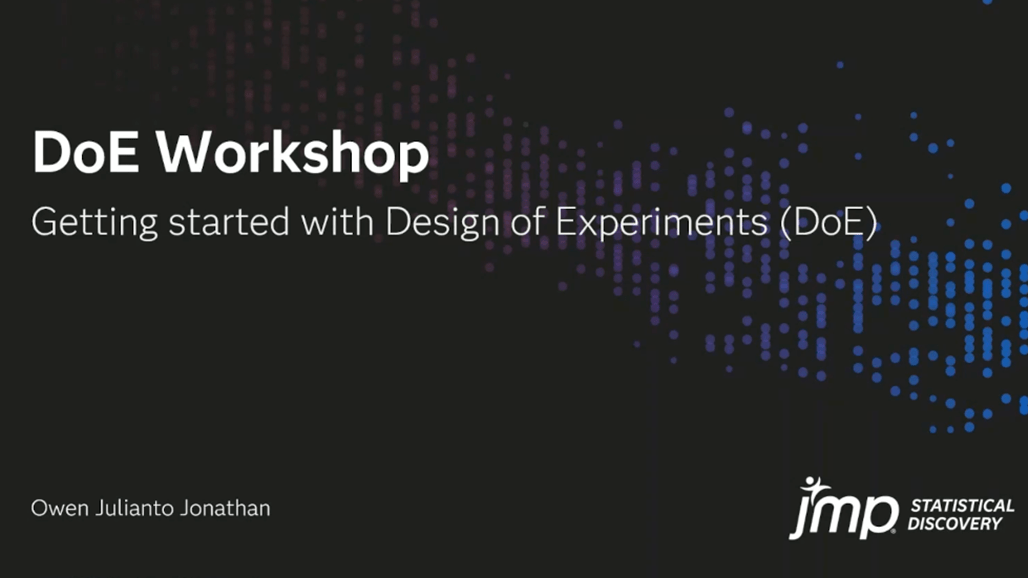
For industrial R&D and manufacturing, design of experiments (DOE) is the best approach to experimentation which considers multiple factors at a time, leading to a better understanding of the process. DOE empowers scientists and engineers to uncover optimal solutions by thoroughly investigating the capabilities of their processes and save cost and time by planning more efficient experiments. It serves as a dynamic learning methodology, enabling you to capture and understand complex behaviours.
In this webinar, JMP's Owen Jonathan introduces the fundamentals of DOE. Discover how this innovative statistical method can enhance efficiencies, establish a basis for future investigations and achieve greater returns on investment.
Key takeaways:
- Benefits of using DOE versus the limitations of one-factor-at-a-time (OFAT) experimentation
- Common DOE terminology, including main and interaction effects
- Modern DOE designs, including screening and optimization
- DOE workflow with examples
- Tailored DOE approaches and strategies to tackle specific constraints
Presenter:
Owen Jonathan is a Senior Associate Systems Engineer at JMP, where he identifies critical business issues faced by customers in the UK and Ireland, guiding them as they adopt data-driven solutions for their organizations. Prior to becoming a Systems Engineer, Jonathan was an intern at JMP, identifying DOE applications in biotechnology and delivering DOE workshops and relevant case studies to synthetic biologists. He has a master’s degree in systems and synthetic biology from Imperial College London.
Hosted by Adam Duckett, Editor of The Chemical Engineer.
26th June 2025
